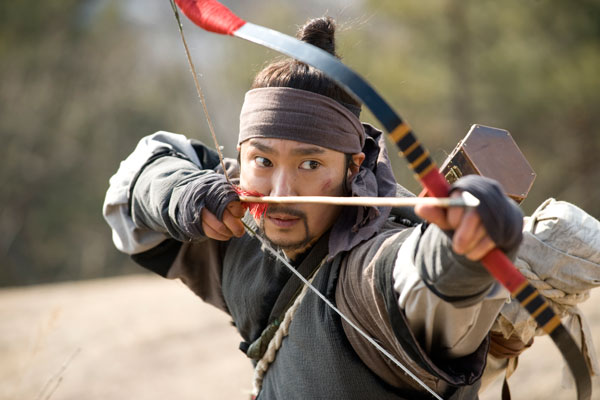Paradise Lost 3: Purgatory
Calling all law buffs and Bain Jumper fiends! Look no longer! Joe Berlinger and Bruce Sinofsky’s Paradise Lost 3: Purgatory follows the trial and aftermath of the murders of three 12-year-old boys in 1990s Bible Belt America and those supposedly responsible – the West Memphis Three. The raw and somewhat disturbing footage documents a town’s hysteria, which subsequently led to unreasonable pressure on the police to find answers to a heinous crime. Instead, this infraction induced an atrocious and gross account of convenient misunderstandings and small town animosity towards “Metal-lovers” or “devil worshipers” who refused to subscribe to the model teenager of the day. Without giving too much away, Paradise Lost 3: Purgatory offers a window into the US judicial system and challenges the credibility of trial by jury and the value of having a good lawyer.- Sasha Borissenko
Yes Madam, Sir
In India, life is tough. It is a country governed with a mixture of feudalism and democracy creating constant, dangerous grounds. To attempt to achieve justice within this system which so easily yields to corruption is a desire which only the most determined can have. The documentary Yes Madam, Sir sheds a rare glimpse into one of those incredible individual’s lives. Filming on her own camera for over six years, Megan Doneman reveals the inner workings of Kiran Bedi’s personal life and career. From becoming the first woman to join the elite Indian Police Service to working with the UN and being awarded an array of top social justice awards, Kiran Bedi’s life has been both fascinating and brutally challenging. While the shooting remains simplistic and of a technically average quality, Kiran’s story is one that is both challenging in the moral and social issues it raises. A movie that is hard to forget.- Loulou Callister-Baker
War of the Arrows
War of the Arrows is a South Korean film straddling the boundaries of the martial arts, war and chase film genres. When Korea is invaded by the Manchu in 1636, Choi Nam-Yi, a skilled archer, sets out to rescue his captured sister. Before long Nam-Yi’s notoriety spreads and he meets his match in an elite band of Manchu soldiers. In a series of gripping action sequences – which make extensive use of both the Principle of Evil Marksmanship and the Inverse Ninja Law – Nam-Yi finds himself both hunter and hunted.The film is a fast-paced action flick featuring strong lead performances and stunning cinematography. The chase scenes through the Korean hills and forests are highly reminiscent of Apocalypto and the film as a whole has the feel of a grittier, less whimsical House of Flying Daggers. A must-see for fans of historical action.
- Sam McChesney
Alois Nebel
The black-and-white rotoscoped animation of Alois Nebel provides a captivating visual template for this grim, atmospheric film from the Czech Republic. The eponymous main character is a middle-aged train dispatcher in rural eighties Czechoslovakia, a shy and possibly depressed man given to hallucinations of his childhood, which centre on the departure of the Germans after World War II. When a mysterious mute man crosses the border from Poland, the past and present begin to collide, though whether Nebel is aware of any of this is hard to tell.As with other rotoscoped films like Waltz With Bashir, the animation is used to create a mood, rather than to push the boundaries of visual possibility. The mood in Alois Nebel is dark and solipsistic – following a man drifting through a sea of moral ambiguity, catching snippets of conversation and brief glimpses into other people’s lives. An absorbing, low-key gem.
- Sam McChesney







